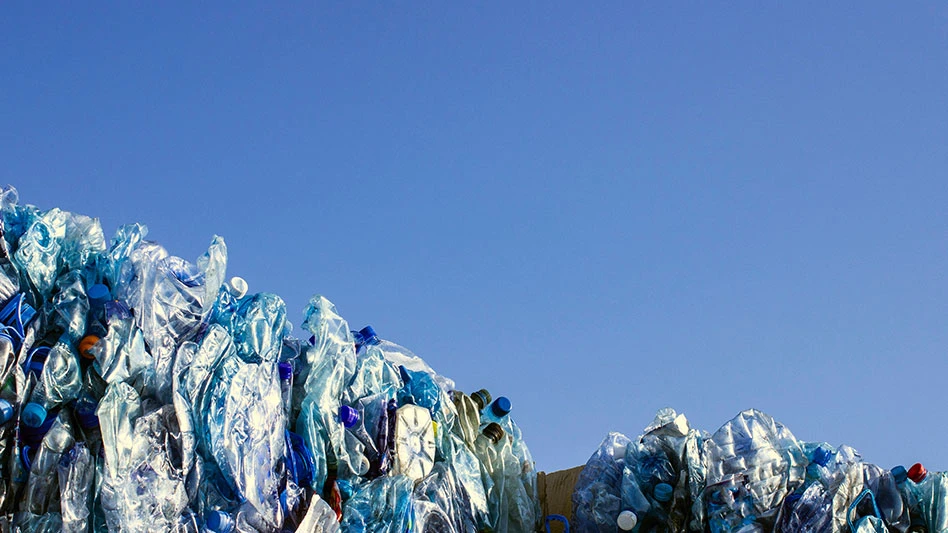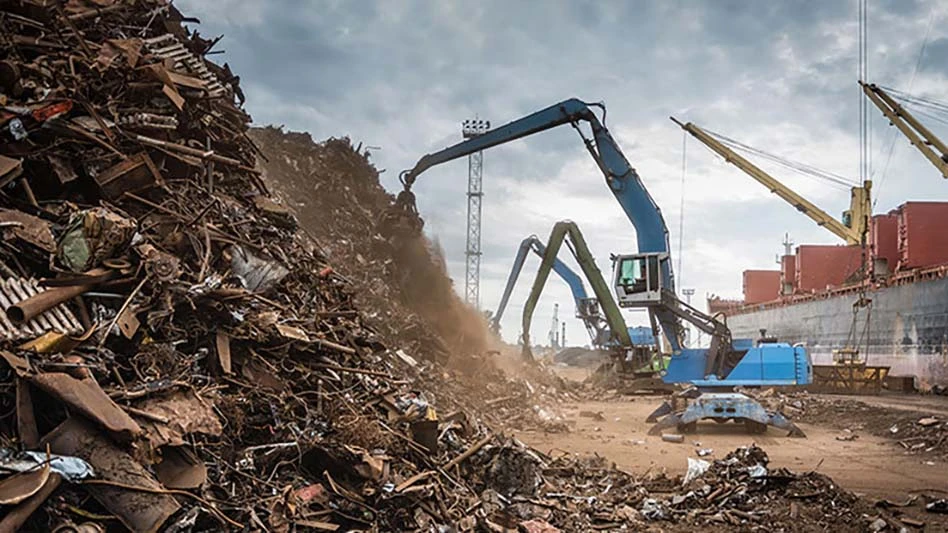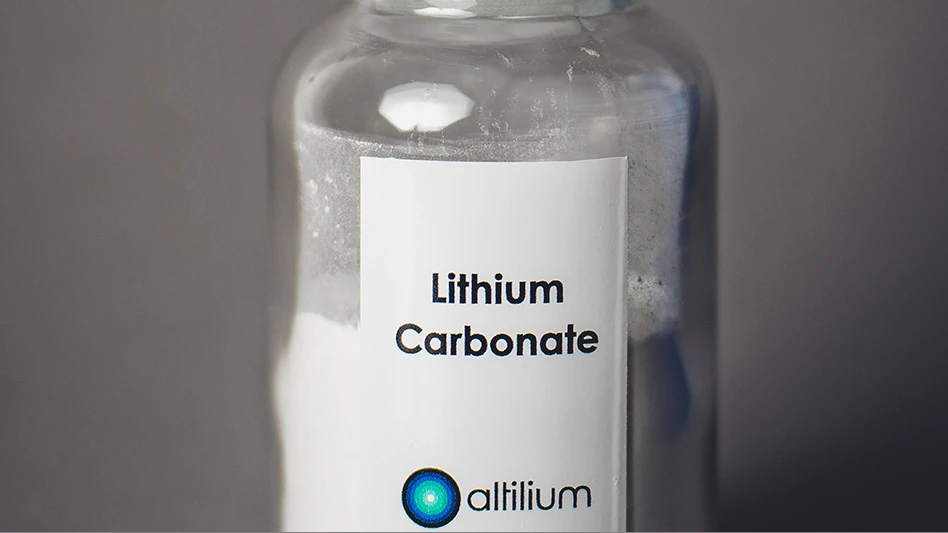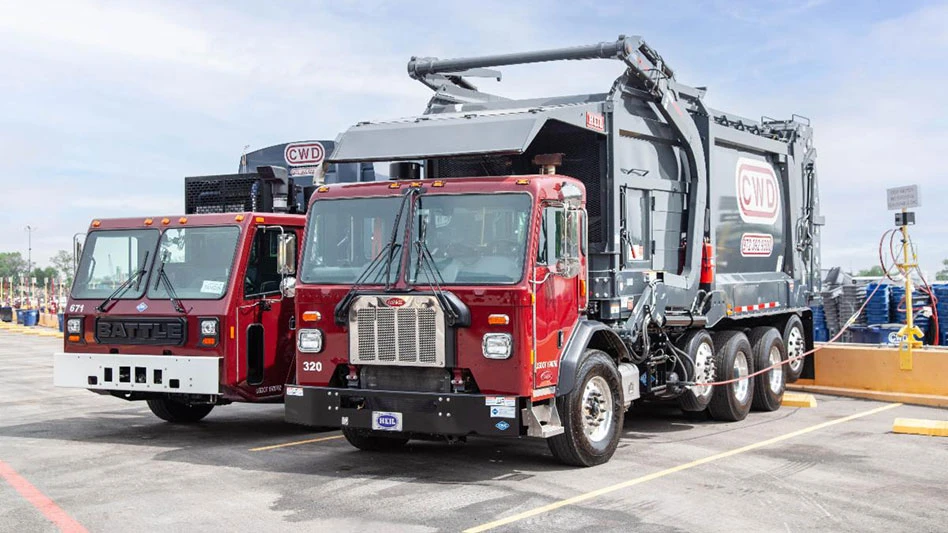EU REPORTS PACKAGING RECYCLING INCREASE
About 48% of packaging sold in nine European Union (EU) countries was recycled in 1997, according to a Reuters report.
EU countries are obligated to report recycling levels of packaging materials because of a 1994 packaging waste directive, which is geared toward reducing the landfilling of packaging.
“These reports show that great efforts have been made, in particular by industry, to implement the directive,” says ERRA managing director Jacques Fonteyne. “What’s not so clear, apart from inconsistencies in data, is what these results mean in terms of environmental impact.”
Based on the figures received and tabulated for 1997, 21 million metric tons of packaging in the nine reporting nations was recycled out of a total of nearly 43 million metric tons of packaging materials used.
SENTENCE HANDED DOWN FOR CALIFORNIA RECYCLING SCHEME
A Los Angeles man was convicted of illegally claiming more than $650,000 of California Refund Value (CRV) on beverage cans brought into California from Arizona. Jorge Chua, 40, was found guilty of mail fraud last month by a Sacramento federal jury. He faces a maximum sentence of 40 years in prison. Two other defendants in the case still remain fugitives: Mario Solo, 58, of Los Angeles and Raul Fernandez, 58, of Las Vegas.
An investigation by the California Department of Conservation’s Division of Recycling, the California Department of Justice and the U.S. District Attorney’s Office in Los Angeles uncovered the case as part of their effort to find and punish fraud in California’s container beverage recycling industry.
Evidence was introduced in the case that Solo and Fernandez purchased recyclable containers in Arizona and then brought them to California, according to Assistant United State Attorneys Michael Malecek and Matt Jacobs. Once the materials had reached California, they delivered them after business hours to Chua’s recycling operation, 168 America Recycling, Los Angeles. 168 America was a certified recycler of UBCs under the California Beverage Container Recycling and Litter Reduction Act.
To claim California Refund Value payments on the out-of-state material, Chua created false records to submit to the state for reimbursement. False claims were made by Chua for more than $650,000 in fraudulent CRV claims—about $420,000 for aluminum, $130,000 for glass and $117,000 for plastic.
During a search by investigators of 168 America in 1997, a second set of accounting records that had been shredded either shortly before the investigators arrived or during the execution of the search warrant were discovered. The records showed how Chua had run the Arizona cans through the center and falsely claimed CRV on them.
Chua faces sentencing on Feb. 4, 2000 and could also be ordered to make restitution and pay fines.
PENNSYLVANIA RECYCLING GRANTS QUESTIONED
The Pennsylvania Department of Environmental Protection overpaid recycling grants to three municipalities, according to Auditor General Robert P. Casey Jr. An audit found that the municipalities were overpaid because local officials reported higher recycling rates or that they failed to keep supporting documentation, and that DEP officials may have embellished the rate at which municipalities were recycling.
“The Ridge administration’s failure to properly oversee the recycling grant program resulted in taxpayers paying more than they should have for recycling services,” says Casey.
The audit revealed that three of Pennsylvania’s 574 municipalities with recycling programs—Harrisburg, Hampden Township/Cumberland County and Lebanon County—were overpaid a combined $103,000 for 1996 grants.
For 1996 the state was to have paid $5 to municipalities for each ton of documented recycled materials and a bonus award based on population and the type and weight of the materials being recycled. Municipalities are required to report to their county the weight of materials recycled during the previous calendar year.
According to Casey, when the DEP adjusted the weight to calculate recycling grants, it did not adjust the corresponding weight of the recycled material in its annual report. This figure is used to calculate the state’s overall recycling rate.
Some recommendations suggested by Casey include that the DEP require municipalities to maintain sufficient records of recycled waste to substantiate their grant applications. He also urged the department to increase the number of site reviews conducted and to establish a standard form for trash haulers, market vendors and municipalities to more accurately keep records.
FED-EX GOES WITH “GREEN” ENVELOPES
Federal Express Corp., Memphis, Tenn., will not officially be adding green to its corporate colors, but the company has earned points with the recycling community with its latest announcement.
FedEx has agreed to use 100% recycled-content envelopes starting in mid-November. The envelopes will be made of 100% recycled paperboard, 35% of which will be post-consumer content, according to the terms of a license agreement between FedEx and the 100% Recycled Paperboard Alliance, New York.
The global shipping company joins more than 60 other corporations that have forged agreements with the 100% Recycled Paperboard Alliance that allow the companies to display a “100% Recycled Paperboard” icon on their packaging.

Explore the December 1999 Issue
Check out more from this issue and find your next story to read.
Latest from Recycling Today
- Midland Davis Corp. welcomes new account manager, broker
- Universal Stainless stockholders approve acquisition
- Century Aluminum receives Phase One contract under DOE grant
- Graphic Packaging’s Waco CRB mill targeted for Q4 startup
- Hydro receives $17.4 million in the form of Inflation Reduction Act tax credit
- Ikea store operator announces $1B recycling investment target
- Monadnock Paper Mills attains CSR certification
- Spectro Alloys completes recycling expansion





